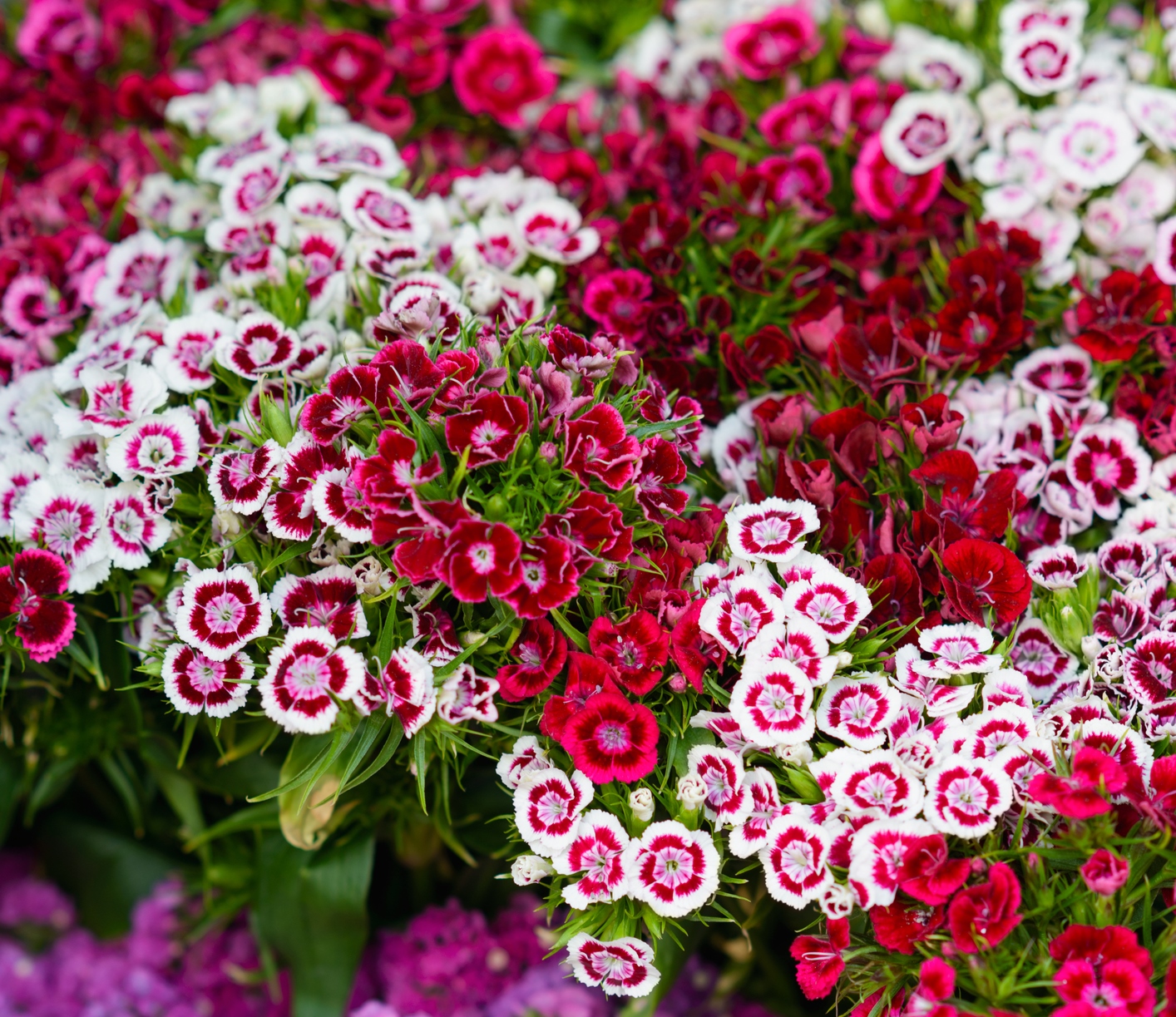Sweet Williams, and the sweet mysteries of words
I have recently been on holiday in France, a place anyone who knows me at all well will know is a favourite destination. I try to visit at least once a year, and would happily visit more. Anyway, I digress. Towards the end of our holiday my eye was caught by some Sweet Williams (Dianthus barbatus) in a bucket at a flower stall. Although I never buy them as cut flowers, they often catch my eye with their deep pinks, reds and purples, and their sheer posy-ish appeal.
My eyes lingered only momentarily over the flowers, but as we moved off, my eye was really caught by something. Unsurprisingly, the label in the bucket didn’t say “Sweet Williams” – but what it did say was “Jalousie” (it may have been “Jalousies” but I didn’t take in the detail of it). That was strange and interesting, I thought.
At the time, my errant brain meandered off on a different “Jalousie” course. I remembered a book I had (attempted to) read in secondary school French lessons, in which Venetian blinds and jealousy were interlinked. If I understood it correctly (which wasn’t a given, I hasten to add) the blinds were used as a metaphor for jealousy. In case you don’t know, the word for a Venetian blind and jealousy in French is the same. The book was La Jalousie by Alain Robbe-Grillet, which I must revisit one day (once my French has improved).
Thinking back on it several weeks later, I wondered if I had imagined the “Jalousie” label, but when I looked the word up in my English-French-English dictionary, sure enough, one of the English equivalents was “sweet-william”. I then looked up the flower name in the English section, but instead of finding “jalousie”, the entry read “oeillet de poète”. Yes, another name for the Sweet William is “little eye of the poet”. An oeillet on its own is an eyelet and a pink/carnation*, but when it’s the poet’s, it’s a Sweet William! Something to do with its prettiness being inspirational, I imagine? Their markings do also resemble a little eye blinking at you.
Not that long ago I read The Language of Flowers by Vanessa Diffenbaugh, which I enjoyed immensely (more of that another time). This book really heightened my awareness of the meaning of flowers, which few of us think about when making a floral purchase. But I wondered if Sweet Williams were called “Jalousies” in France because of their meaning in flower language. I will have to look through Diffenbaugh’s book to see if they are mentioned there, but the source I have available today only gives “gallantry” as the meaning of Sweet Williams. So we have jealousy, gallantry, and poetry, all bound up in this sweet, pretty little flower, all of which fascinates this word nerd.
It’s not beyond the realms of possibility that Sweet Williams have more than one meaning in flower language; Diffenbaugh’s book did demonstrate that flowers can have two quite diverse meanings. But if jealousy isn’t one of the meanings for Sweet Williams, somewhere there must exist an explanation for why the French call them “jealousies”. Perhaps this sort of jealousy doesn’t have the meaning we understand – after all, what is jealous about a blind? (Except as something a jealous one might safely peep through to make sure one’s loved one wasn’t misbehaving on the way to the doorstep?) I will try to find out, but in the meantime, I leave you with this thought: If you were a flower, wouldn’t you be a little jealous of the sweet Sweet Williams?
*Dianthus caryophyllus. Carnations and Sweet Williams are, of course, both species of the Dianthus genus.
Sources and references
Diffenbaugh, V. (2011) The Language of Flowers, Macmillan
The Old Farmer’s Almanac – Meaning of Flowers
Wikipedia – entries for Dianthus caryophyllus and D. barbatus

